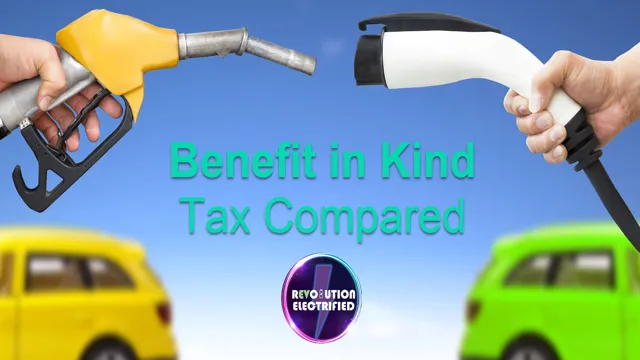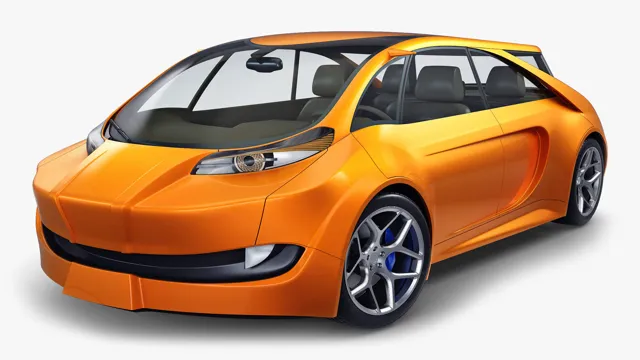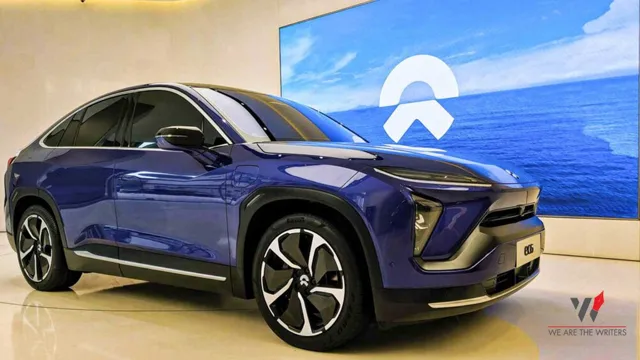Rev Up Your Savings with Electric Cars: Unleashing the Benefits of Eco-Friendly Driving
Electric cars have been on the rise in recent years as more people become aware of the benefits of owning one. With the push towards sustainability, electric cars provide an excellent solution to reduce pollution and carbon emissions. In addition to their eco-friendliness, electric cars offer several other advantages over traditional gas-powered cars.
Firstly, electric cars are incredibly cost-efficient as they require less maintenance. There is no need for oil changes or tune-ups, and the brakes can last up to three times longer due to reduced wear and tear. Moreover, the cost of electricity as a fuel source is significantly lower than gasoline, resulting in savings in the long run.
Another benefit of electric cars is their quiet and smooth operation. Unlike gas-powered cars that make unpleasant noises and emit exhaust fumes, electric cars operate silently and produce zero emissions. They provide a peaceful and relaxing driving experience, making them ideal for daily commutes and road trips.
Furthermore, owning an electric car can increase your energy independence. With an electric car, you can generate your electricity using solar panels or wind turbines, allowing you to power your vehicle sustainably. This can be especially useful during natural disasters or power outages, where having an alternative energy source can be crucial.
Lastly, owning an electric car contributes to a better future for the environment. By reducing your carbon footprint and promoting sustainability, you’ll be doing your part to reduce greenhouse gas emissions and help fight climate change. In conclusion, owning an electric car offers numerous benefits, from cost efficiency, energy independence, and environmental sustainability.
As the world moves towards sustainable living, electric cars play a vital role in shaping our future. So consider investing in an electric car not only for the benefits you will enjoy, but also for the positive impact you can make on our planet.
Reduced Environmental Impact
When discussing electric cars, one cannot deny the significant benefit it brings to the environment. By opting for electric cars, drivers reduce their carbon footprint as they do not release any emissions from the tailpipe. Additionally, electric cars have a higher energy efficiency rate since they convert energy from the power grid more efficiently than gasoline-powered cars.
It means that less energy goes to waste when it comes to charging the battery. The manufacturing process of electric cars also supports environmental preservation compared to that of gasoline-powered cars. The production of electric cars requires fewer chemicals and produces less waste during the manufacturing process.
As electric cars become more mainstream, it is clear that the reduction in environmental impact is a crucial benefit that cannot be ignored, and it will help ensure a better future for generations to come.
Less CO2 Emissions
Reduced CO2 emissions lead to a decreased environmental impact and many car manufacturers are now making strides to reduce their carbon footprint. By utilizing eco-friendly materials and introducing hybrid or electric models, car companies are taking a step in the right direction. The rise in popularity of electric cars has been seen as a groundbreaking solution to decreasing oil consumption and protecting the environment.
Ultimately, less CO2 emissions have a positive impact on our air quality and minimize the impact on the environment. With the world’s emissions contributing to global warming and climate change, this is an important step in changing how we live and consume. While still in its early stages, the progress of electric cars and their ability to help combat climate change is a promising one.

Less Noise Pollution
Reduced environmental impact can lead to a less noisy world. Noise pollution is a significant contributor to environmental degradation and can have serious consequences for both humans and wildlife. Reduced traffic, for example, leads to fewer honking horns and engine noises, which can make urban areas much quieter.
Fewer flights and boats also mean fewer sonic disturbances in the air and water. Additionally, reduced industrial activities can lead to quieter workspaces, lowering the risk of occupational deafness. By reducing our impact on the planet, we don’t just improve the quality of our environment but also reduce the noise pollution that comes with it.
Quieter environments can have a positive impact on our well-being, mental health, and quality of life. So let’s take steps to reduce our impact and enjoy a quieter world.
Reduced Dependence on Fossil Fuels
Reduced environmental impact is a critical factor in reducing our dependence on fossil fuels. The burning of coal, oil, and gas releases harmful greenhouse gases into our atmosphere, contributing significantly to global warming. By utilizing renewable energy sources, such as solar, wind, and hydroelectric power, we can significantly reduce the level of pollution caused by fossil fuels.
Not only do these sources reduce our carbon footprint, but they also promote clean air and water, which is crucial for our health and well-being. By transitioning to renewable energy, we can help create a sustainable path forward while reducing our negative impact on the environment. With a concerted effort to switch to eco-friendly practices, we can all make a significant difference in reducing our dependence on fossil fuels and protecting the planet.
Cost Savings
One of the biggest benefits of owning an electric car is the cost savings it can generate. While electric cars may be more expensive upfront compared to their traditional gasoline counterparts, they tend to be significantly cheaper to operate and maintain over time. This is because electricity is much cheaper than gasoline, with electric cars costing an estimated $500 a year to fuel compared to $1,500 for gasoline cars.
Additionally, electric cars require fewer expensive parts and fewer oil changes, resulting in less maintenance costs overall. All of these savings add up over time, making electric cars a smart investment in the long run. So, not only are electric cars better for the environment, but they can also save you money in the process.
Lower Fuel Costs
Lower fuel costs are a major benefit for many people, especially those who rely on transportation for work or other activities. With rising gas prices, finding ways to save money on fuel can be a game-changer. There are several ways to reduce fuel costs, including driving more efficiently, maintaining your vehicle properly, and using public transportation or carpooling when feasible.
By driving smarter, you can reduce idling, accelerate gradually, and avoid speeding. Regular vehicle maintenance, such as oil changes and tire rotations, can also improve fuel efficiency. If possible, consider using public transportation or carpooling with coworkers or friends to save even more money.
By taking these steps, you can enjoy the benefits of lower fuel costs without sacrificing your ability to get where you need to go.
Reduced Maintenance Costs
Reducing maintenance costs is a top priority for any business or organization. This is especially true for those who operate heavy machinery or equipment regularly, as maintenance costs can quickly add up and become a large expense. By investing in preventative maintenance measures, such as regular inspections and upkeep, businesses can avoid costly repairs and replacements down the line.
Additionally, incorporating high-quality materials and components into machinery and equipment can also lead to reduced maintenance costs, as these items are less prone to wear and tear. Overall, taking a proactive approach to maintenance and investing in quality materials can ultimately save businesses a significant amount of money in the long run. So, whether you’re a small business owner or the manager of a large industrial plant, prioritizing maintenance can ultimately boost your bottom line.
Tax Incentives and Rebates
When it comes to managing finances, every penny makes a difference. That’s why it’s important to keep an eye out for tax incentives and rebates that will provide cost savings for individuals and businesses alike. Government agencies provide tax credits for a wide range of activities, such as renewable energy investments or hiring employees from targeted groups.
These credits reduce the amount of taxes owed and provide a direct path to increase net income. Rebates, on the other hand, are cash back incentives for purchasing energy-efficient or environmentally friendly products that improve the power efficiency of homes or businesses. With the right information and research, utilizing these incentives and rebates can have a significant long-term impact on your bottom line.
Let’s not forget that these incentives are not limited to large corporations; small and medium-sized businesses are also eligible to take advantage of these saving opportunities. So, if you’re interested in lowering your expenses and reducing tax liabilities, explore the various tax incentives and rebates available to you. You may be surprised at how much you can save!
Improved Performance
A major benefit of electric cars is their improved performance on the road. Electric engines offer instant torque, which gives drivers immediate and smooth acceleration. This is in contrast to internal combustion engines, which require time to build up speed.
Additionally, electric cars have lower centers of gravity due to their battery packs being typically located beneath the floor. This not only gives electric cars better handling and stability but also minimizes the risk of rollovers. Plus, electric cars make much less noise than their gasoline-powered counterparts, making for a much quieter and peaceful driving experience.
Overall, electric cars offer impressive performance and a superior driving experience that is hard to match with traditional vehicles.
Instant Torque and Acceleration
Improved Performance When it comes to electric vehicles, there’s no denying that instant torque and acceleration are two of their biggest selling points. Unlike traditional gasoline-powered cars that rely on an engine to generate power, electric vehicles are propelled by an electric motor that provides immediate and consistent torque. This means that when you step on the accelerator, you feel an immediate response that pushes you back into your seat.
Not only does this provide an exhilarating driving experience, but it also results in improved performance overall. Electric vehicles have been known to achieve faster 0-60 acceleration times than their gas counterparts. With improved performance, electric vehicle owners can enjoy a smooth and efficient ride, making electric vehicles a smart choice for those who value both speed and sustainability.
Smooth and Quiet Driving Experience
When it comes to driving, everyone wants a smooth and quiet experience. That’s why improved performance is essential. Whether it’s accelerating, braking, or cornering, a vehicle that performs well makes for a much better driving experience.
Improved performance means less jerking or jolting, resulting in a smoother ride. Additionally, a well-tuned engine will run more quietly, reducing any excessive noise or vibrations. Not only does this make for a more enjoyable ride, but it also reduces fatigue and stress, especially on longer journeys.
So, if you’re looking for a more comfortable and enjoyable driving experience, focus on improving your vehicle’s performance. You’ll notice a significant difference.
Conclusion
In conclusion, it’s clear that electric cars are the way of the future. Not only do they reduce our carbon footprint and help combat climate change, but they also offer incredible savings on fuel costs and require less maintenance than traditional gas-powered vehicles. Plus, with advancements in technology, electric cars are only getting better and more accessible.
So let’s ditch the gas guzzlers and join the electric revolution – your wallet and the planet will thank you!”
FAQs
What are the benefits of owning an electric car?
Electric cars have lower operating costs, emit no harmful pollutants, require less maintenance, and provide a smoother and quieter driving experience.
Is it more affordable to own an electric car compared to a gasoline-powered car?
Although the initial cost of an electric car may be higher, owners will save money in the long run due to the lower cost of electricity compared to gasoline and maintenance expenses.
What incentives are available for purchasing an electric car?
Some incentives include federal tax credits, state rebates, and discounts on EV charging stations. Buyers may also be eligible for carpool lane access and reduced registration fees.
Can electric cars travel long distances without charging?
Yes, some electric cars have a range of over 300 miles on a single charge. Additionally, there are numerous charging stations available throughout the country to keep electric car owners on the move.





